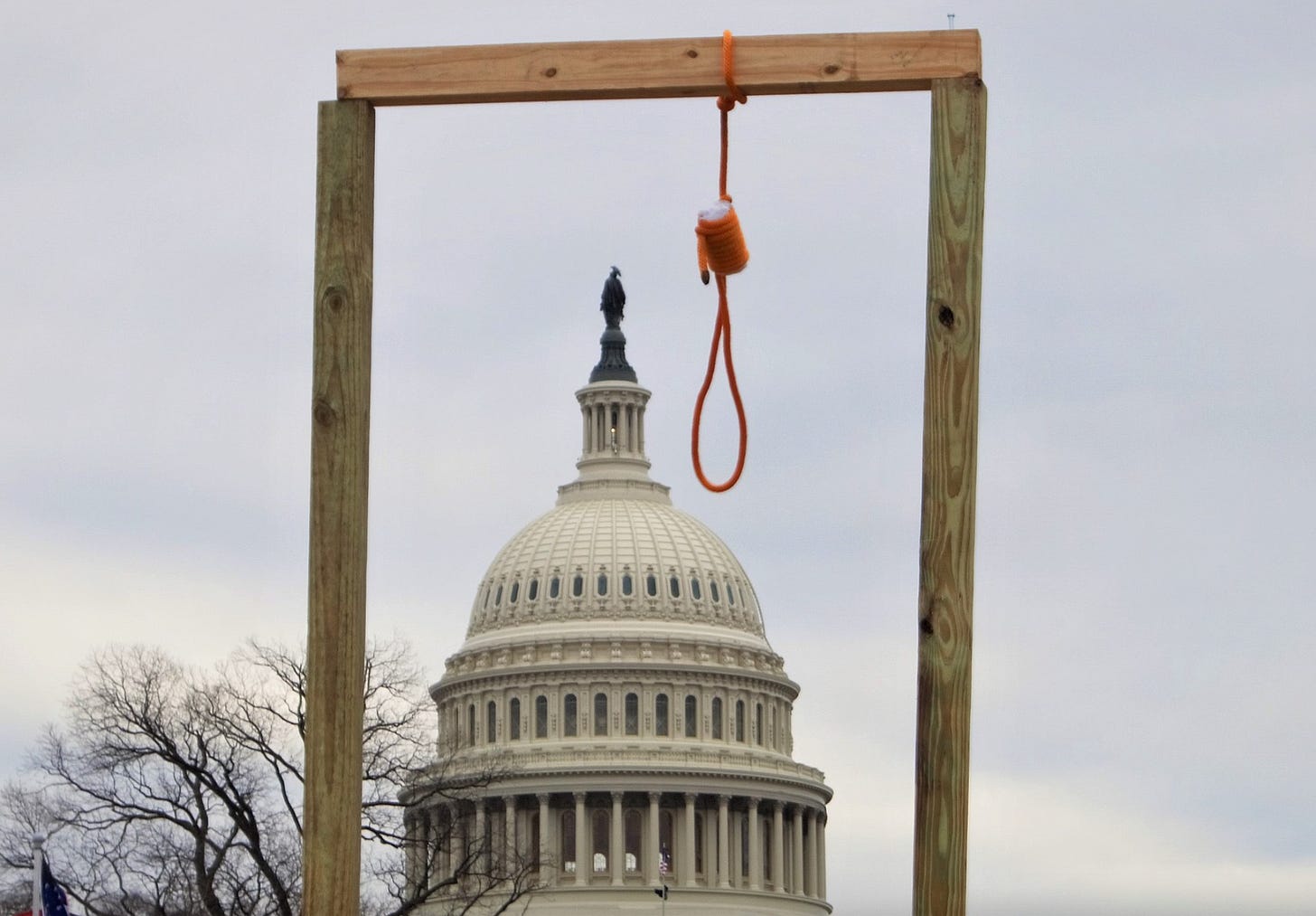How to Not Mess Up Jan. 6 Hearings
Stay focused on the Capitol attack of January 2021, its causes, and aftermath. Don't make it about anything else.
The January 6 investigation begins public hearings this week, and prominent pundits are preemptively lamenting all the ways it went wrong. Most amounts to theater criticism, horse race analysis of November’s midterm elections (usually under the assumption that Democrats will lose regardless), or setting an absurd bar for success, such as getting committed Republicans to change their minds. Fortunately, the Jan. 6 Committee appears to be ignoring this handwringing.
These hearings are not the final hope for U.S. democracy, and America’s fate will not be determined by how a member of Congress words a question on TV. The main value of Congressional investigations is to find and present facts, creating a detailed public record we can examine for lessons and cite to counter revisionist history. In this case, there’s also value in focusing public attention, explaining to Americans what happened, presenting new information, shocking those who grew complacent or bought efforts to downplay it, and warning that the threat to Constitutional democracy didn’t conveniently disappear.
There is, however, one big way to screw that up: Make it about things besides Jan. 6.
“Jan. 6” means that day’s attack on the U.S. Capitol and its causes—most notably former president Donald Trump and associates’ attempt to keep him in power after he lost reelection—along with lasting effects on American democracy. It does not include anything else, related or otherwise. It is not an opportunity to achieve policy goals, even important ones, or to expand the Overton Window. It should not, contra New York Times columnist David Brooks, focus instead on “the broad social conditions that threaten to bring American democracy to its knees.” Nor should it recommend reforming the Electoral College, as Rep. Jamie Raskin (D-Md.) reportedly prefers. Including any of that stuff would be a distraction, counterproductively broadening the scope and turning off potential allies, thereby reducing the likelihood of politically plausible reforms.
Same for voting rights. Though important, voting rights do not directly pertain to Jan. 6. Both the day’s violence and the larger coup plot were trying to prevent the transition of power after an election, not restrict who can participate in one beforehand.
That threat of post-election subversion, though evolved, is ongoing. For example, Georgia’s gerrymandered state legislature gave itself new powers over election administration after Trump failed to overturn results in 2020, and has already used them to remove black Democrats from election boards in six counties and replace them with white Republicans. Not coincidentally, those counties have been a focus of Trumpist lies about fraud.
Trump’s defenders, apologists, and enablers want to make Jan. 6 just another partisan issue. To make the highly unusual aftermath of the 2020 election a normal part of politics, one equivalent to other things—“whatabout X, huh, whatabout that?”—a fight where everyone should defend their “side,” rather than treating it as the unprecedented violation of the Constitutional order that it was. In essence, they’re trying to change the laws and norms of American democracy from accepted rules based on jointly-professed ideals into things to use, manipulate, or discard in pursuit of power.
Older issues, with established arguments and sides, play into that bad faith move. Anything that ties back to old partisan fights, or wrongly frames Jan. 6 as another liberal-conservative or urban-rural dispute, helps opponents of democracy muddy the picture. They’ll try to muddy it regardless, but how well that resonates with the public depends on how much ammo others give them.
An American president refusing to honor an election, lying incessantly about the results, and scheming to stay in power is new. Violently disrupting modern America’s peaceful transfer of power is new. Preparing to subvert the will of voters in future elections is new. Anything that treats it as more of the same, or about something else, undermines efforts to raise concern about today’s heightened risks.
We—by which I mean everyone who prefers American democracy to the alternative—need Jan. 6 to go down in history as a close call, not a prelude. We can each do our part by keeping the Jan. 6 discussion where it belongs: focused on Jan. 6. That’s how we rally a broad coalition to the used-to-be-concensus position that, whatever our disagreements, we manage them through argument, elections, and courts, not lies, bad faith legal manipulations, and violence.


